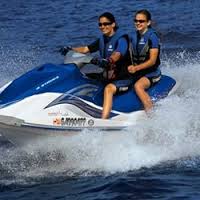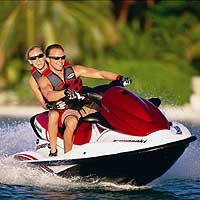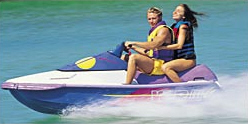



We have a policy for most types of boats including bass boats, cruisers, fishing boats, pontoons, runabouts, sailboats, catamarans and utility boats.
 Larger and faster boats such as yachts, and personal watercraft such as jet skis and wave runners require a separate boat insurance policy. The size, type and value of the craft and the water in which you use it factor into how much you will pay for insurance coverage.
Larger and faster boats such as yachts, and personal watercraft such as jet skis and wave runners require a separate boat insurance policy. The size, type and value of the craft and the water in which you use it factor into how much you will pay for insurance coverage.
For physical loss or damage, coverage includes the hull, machinery, fittings, furnishings and permanently attached equipment as part of either an actual cash value policy or on an agreed amount value basis. These policies also provide broader liability protection than a homeowners policy. But there are distinct differences between the two types of policies.
These policies pay for replacement costs less depreciation at the time of the loss. In the event of a total loss, used boat pricing guides and other resources are used to determine the vessel’s approximate market value. Partial losses are settled by taking the total cost of the repair less a percentage for depreciation.
This type of policy means that you and your insurer have agreed on the value of your vessel and in the event of a total loss you will be paid that amount. Agreed Amount Value policies also replace old items for new in the event of a partial loss, without any deduction for depreciation.
Boat insurance also covers:
Most companies offer liability limits that start at $15,000 and can be increased to $300,000. Typical policies include deductibles of $250 for property damage, $500 for theft and $1000 for medical payments. Higher limits may be available. Additional coverage can be purchased for trailers and other accessories. Boat owners may also consider purchasing an umbrella liability policy which will provide additional protection for their boat, home and car.
Boaters should also inquire about special equipment kept on the boat, such as fishing gear, to make sure it is covered and verify that towing coverage is included in the policy.
Boat owners should also inquire about discounts for the following:
There are thousands of recreational boating accidents per year. Contributing factors to these accidents include traveling too fast for water or weather conditions, driving under the influence of drugs or alcohol, failing to follow boating rules and regulations, carelessness and inexperience.
To prevent boating accidents, we offer these safety suggestions:
Skippers can obtain free advice and boating-safety courses from the U.S. Coast Guard Auxiliary. Upon request, the auxiliary will conduct a Courtesy Marine Examination (CME) on your boat, checking electrical and safety equipment and fuel hoses. Boats meeting safety standards are awarded the CME decal "Seal of Safety."
© Copyright 2010, Insurance Information Institute, Inc. - ALL RIGHTS RESERVED
Let the Steve Heald Insurance Agency, help you understand and protect all of the risks you run and all of the perils your business faces. We will do this with a well thought out and executed business insurance policy designed just for our Personal Watercraft Insurance policy holders.